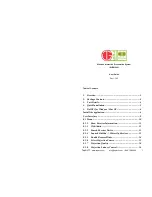
13
FLASH PHOTOGRAPHY
—
Red-Eye Reduction Flash
FLASH PHOTOGRAPHY
— Fill-In
Flash
12
FLASH PHOTOGRAPHY
— Auto Flash
In flash photography with this camera, the shutter speed is set to
1/100-sec. If you select the shutter speed higher than that, the flash
won’t fire.
The flash automatically fires in the selected exposure mode when
required (in the dark, with backlighting, or under fluorescent lighting).
The figures in this table apply to the Programmed Auto mode and low-
light conditions. When reversal film is used, the working range at the
telephoto side will be reduced by about 30%.
If
lights in the viewfinder when
the shutter release button is pressed
halfway, the flash will fire.
ISO
Wide angle (W)
Telephoto (T)
at F4.9
at F6.8
100
3.7 m (12.1 ft)
4.2 m (13.8 ft)
200
5.3 m (17.4 ft)
5.9 m (19.3 ft)
400
7.4 m (24.3 ft)
8.4 m (27.5 ft)
Flash working range (with color negative film)
In this mode, the camera emits a series of pre-flashes before the main flash
activates. This helps minimize the “red-eye” phenomenon (when a subject’s
eyes are illuminated by the flash and appear red in a color photograph).
Use this mode when you want the flash to fire for each
shot. The flash fires regardless of available light. Both
the subject and background can be clearly shot.
Hold the camera securely. It takes about 1 second until the shutter
releases.
Red-eye reduction may not be effective when the subject:
1. Is not looking at the flash from right in front.
2. Is not watching the pre-flashes.
3. Is too far from the camera.
The effectiveness of red-eye reduction varies depending on the
individual characteristics of each subject.
Do not use the flash in the Stop Action mode (p.14).
This mode is less effective in extremely bright
conditions.
The Fill-In Flash mode can be used with the
Programmed Auto mode and Aperture
Preferred Auto mode (p.17).

































